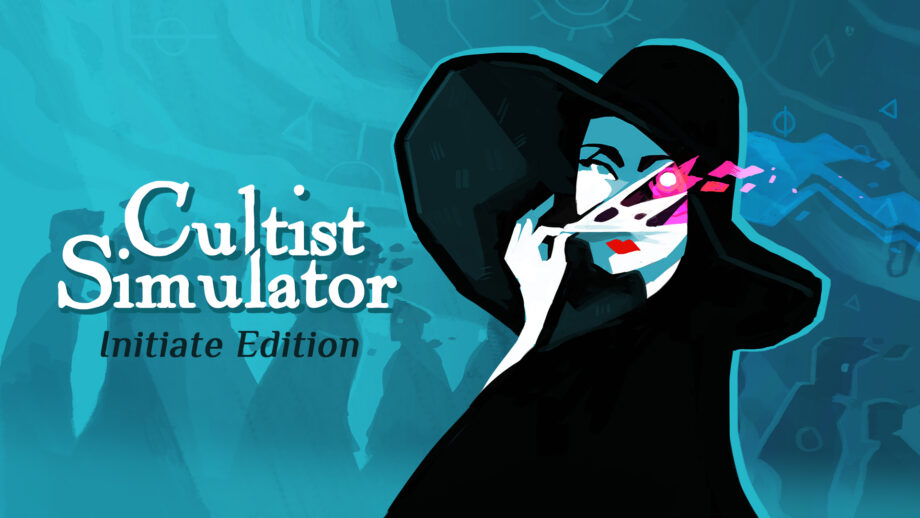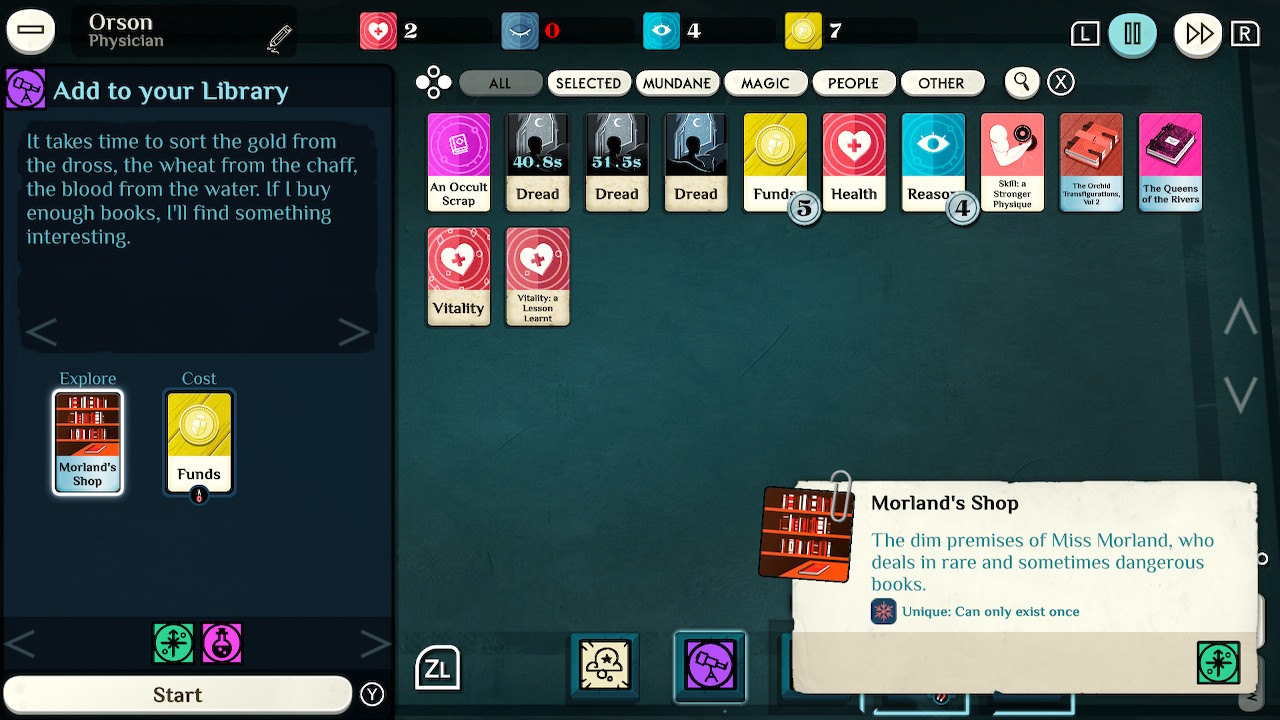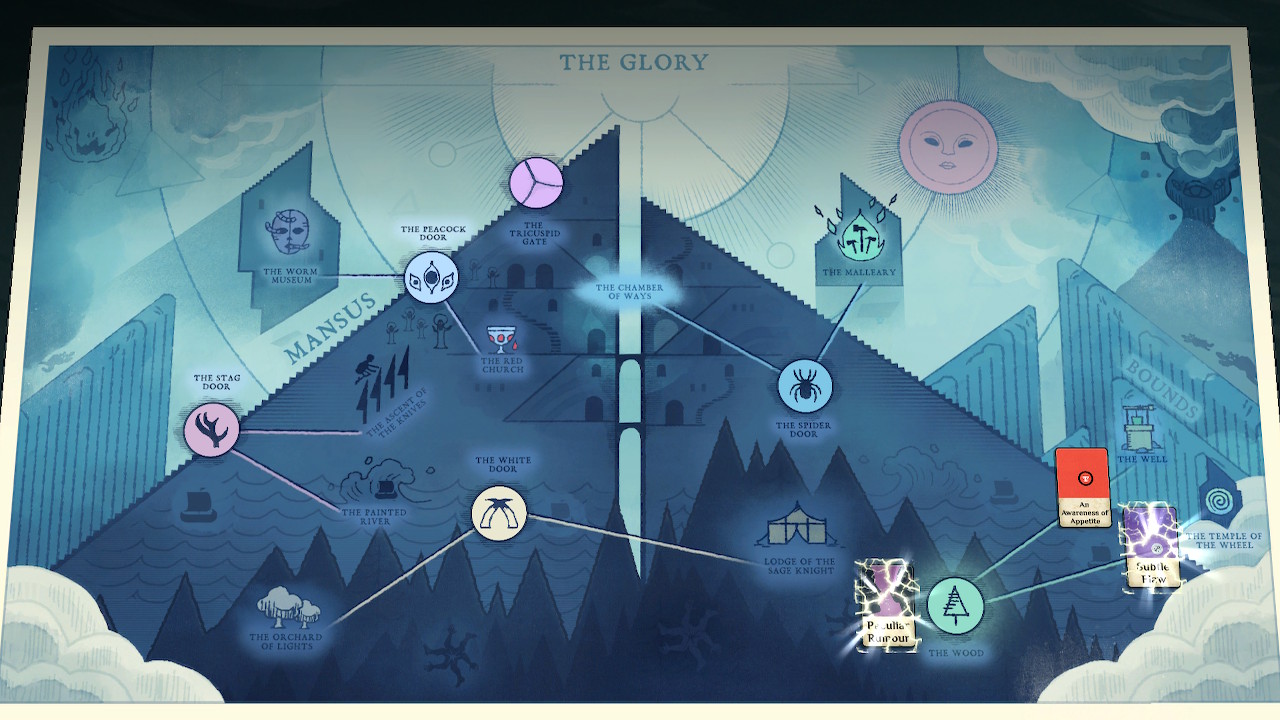
Cultist Simulator is a game, unlike anything I’ve played in recent memory. This game is one of those blink, and you might miss it type of game. A game you might never think about but could be one of the best you’ve played in a while. Its unassuming and strange title might be offputting, but the game inside is a treasure. Cultist Simulator is a Roguelike Card game of sorts. It’s not a basic card game with suits and flushes, but a card game of action. Players will use different cards to push through the story. That doesn’t mean that players should play anything anywhere and hope for the best. Cultist Simulator is a roguelike for a reason. Cultist Simulator wants the player to lose, so they understand the stakes.
The game itself is Lovecraftian in nature, depicting life in the 1920s. Some things occur that might not make sense to players nowadays, but this game can teach the player a few things. For instance, players might take a hit of opium to make their character feel better. While opium isn’t in use now, it was something that many people took in the 20’s. Cultist Simulator wants to be something different, something historical, and it pulls everything into a little package. Cultist Simulator is a game of starting new lives. Each life heads down a path. The first path is the initiate, and that is the one of a cult leader. Players can play as any path that the game offers to them. Initiate starts things out slow by giving the player opportunities to learn how to play the game. Cultist Simulator will not hold the player’s hand; it will throw them to the wolves right from the start.

The game relies on the player’s choices to keep things flowing. There is a lot of text in this game. This game has a couple of novel’s worth of text at the very least. The stories are gripping and can lead the player down many different avenues. I played through many rounds, and each was different than the last. Even if I made similar choices, I rarely found myself in a situation that was the same as another ascension, as the game calls it. The choices the player makes make a world of difference. Players will know the changes when they see them; if they invest enough time into this game, they will notice when things are going down a different path or turning bad. The player wants to keep their character alive as long as possible; they will need to do everything they can to live long lives.
The music in Cultist Simulator is eerie; the vibe it gives off is a dark one. The music subtly plays over the game, and players might feel a little off hearing it. The music is good, but something never feels quite right. The player is doing seedy things or working towards being able to do evil things. The music reflects that, as the player dreads things and kills people, it drifts silently but menacingly. Cultist Simulator has several DLC’s for the player to play through. Players can choose these three DLC right from the main menu. There is a fourth DLC the player can pick up if they enjoy the rest of the game. The three DLC paths that this edition includes are different from the life-paths included in the main game.

Players can jump into the world of Dancers and join in the Bacchanal, gaining notoriety in a seedy cabaret. If the player wants to lead an army of zealots, they might jump at the chance to become a priest. The Ghoul is by far the darkest path of the three and allows players to eat their followers. This game already doesn’t play around, but these additional paths, which can spread to other stories, should be enough to keep anyone playing.
Cultist Simulator is a fantastic game, with multiple layers of story to dig through. Players will die and die again, but each ascension will make them more curious. Players will feel the itch to dive into another life-path and find out what makes this game tick. Each new life is bursting with possibility, will the player endure or lose themselves to the innate wickedness of cult-life?
Disclaimer: A review key was provided

